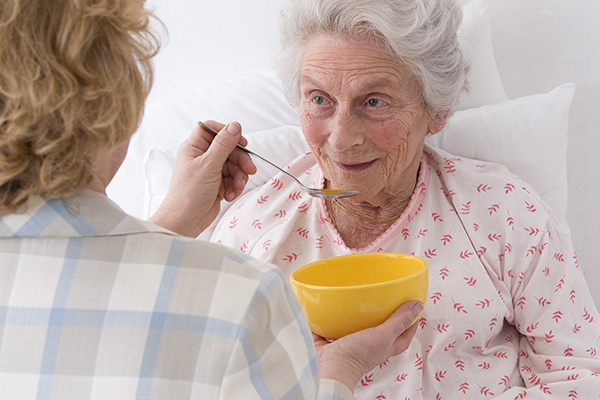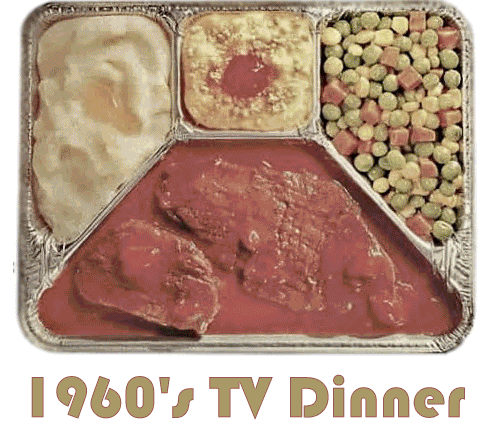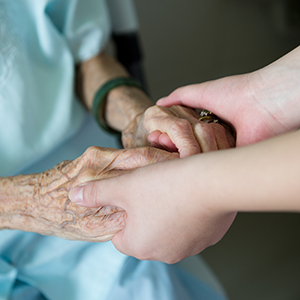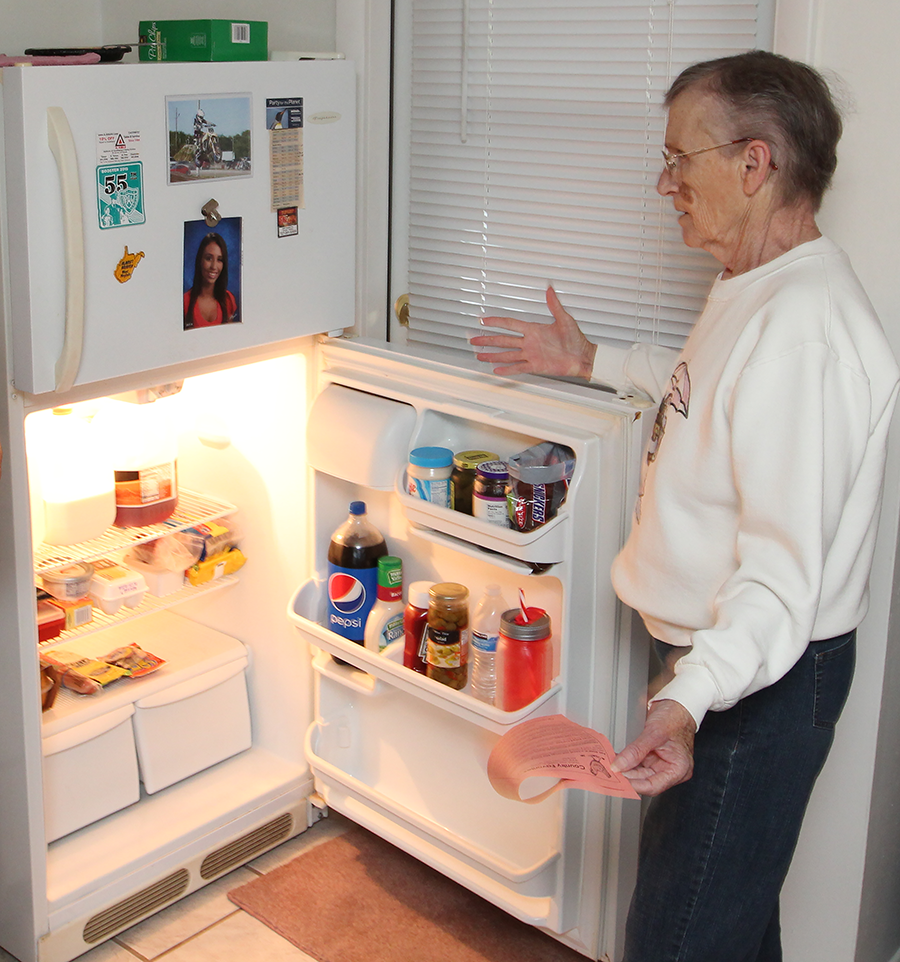The Hospital Consumer Assessment of Healthcare Providers and Systems (HCAHPS) is the survey used to measure patients’ perceptions of their hospital experience. The survey asks discharged patients 32 questions about their recent hospital stay. Patient perceptions and experiences directly impact your facility’s Medicare reimbursement.
Can Home-Delivered Meals Improve Your HCAHPS Score?
Posted by Mary O'Hara on Feb 15, 2017 12:00:00 PM
Topics: Home Delivered Meals, Senior Health, Healthcare Cost Reduction, Healthy Home Delivered Meals, Post Discharge
Seniors have many choices when selecting Medicare Advantage health plans. Many plans include supplemental benefits like vision, dental, and fitness plans.
Topics: Home Delivered Meals, Senior Health, Medicare, Medicaid, Healthy Meals for Seniors, Senior Health Plans
Can Home-Delivered Meals Attract Members to Your Health Plan?
Posted by Mary O'Hara on Jan 6, 2017 9:59:35 AM
No one does their homework before buying better than a baby boomer. Just like buying a car or shopping online, when faced with the decision to select their health plans, research is a top priority.
Topics: Home Delivered Meals, Senior Health, Medicare, Medicaid, Healthy Meals for Seniors, Senior Health Plans
5 New Year's Resolutions Caregivers Should Not Make
Posted by Mary O'Hara on Dec 29, 2016 2:00:00 PM
-
The New Year provides an opportunity for new beginnings! The secret of making resolutions is to keep them reasonable. Don't place unreachable goals on yourself. Think of things you can do to change for the better and to make your life easier.
Resolve for 2017 to take better care of you! To keep more balance in your life, here are five things you shouldn’t do:
1. Over Schedule Your Time.
-
It’s important to not let others take advantage of your time and kindness. Schedule time to enjoy hobbies and pursue your interests. Consider finding a reliable person a few hours a week to provide respite care, giving you some free time. Professional respite care is also available for longer periods of time. Providing companionship for your loved one will give you a break, making you a better caregiver.
2. Neglect Your Friends.
-
Caregivers need to maintain a network of support and friendship. Friends can offer words of encouragement, and provide a sympathetic ear. They may also gain wisdom from your caregiver experiences. Activities with friends such as taking a walk, meeting for coffee, or just talking can provide a fresh perspective.
3. View Everything As A Chore.
-
Caregiving will become less of a burden and more about spending time together if you connect with your loved one. Ask them about their life experiences, including the joys and the struggles. Sharing memories and family history will strengthen your connection and enrich your life.
4. Do Everything Yourself.
-
Review what tasks you can outsource or delegate. Hire a cleaning or yard service to provide more free time. If you spend a lot of time preparing meals for your care recipient, consider home-delivered meals. There are local agencies (check Eldercare.gov) that offer home-delivered meals targeted for seniors. Many Medicaid and Medicare health plans cover the expense of home-delivered meals.
5. Forget to Reward Yourself.
-
Being a devoted caregiver doesn't mean forgetting about your needs. Eating well and getting enough sleep aren’t luxuries! Besides staying healthy, it’s necessary to feel good about yourself. Visit your hair stylist, manicurist, or spa to look and feel your best. A well-deserved treat makes for a happier you!
Congratulate yourself on all the things you do each day!
-
Wishing you a Happy New Year from the GA Foods family.
Want to learn more about caregivers? Download our free infographic.
Topics: Home Delivered Meals, Senior Health, Caregivers, Healthy Meals for Seniors
The Causes of Malnutrition in Older Adults
Posted by Maureen Garner, MS, RD, LD on Apr 27, 2016 11:00:00 AM
While we often hear about children in our society not having access to a proper diet and measures being taken to try to improve their condition, we do not hear as much about the issues facing our older adult population. The fact is, as many as 50-percent of seniors are at risk for shortcomings in their daily food nutrient requirements. Evidence-based research has produced some startling facts that build a case for working to overcome malnutrition in seniors.

Topics: Malnutrition in Elderly, Home Delivered Meals, Senior Health, Nutrition Care
Home-Delivered Meals for Seniors: Why Use Frozen?
Posted by Frank Curto, PhD and Maureen Garner, MS, RD, LD on Apr 6, 2016 11:00:00 AM
Many senior nutrition programs are moving away from the traditional model of delivering hot meals daily to
delivering frozen meals weekly. If the idea of frozen meals conjurs up images of TV dinners from the 1960's, we are talking about something entirely different. Today's meals meet strict nutritional guidelines and are actually targeted for older adults. Here are the facts:
1. Frozen food has the same, if not better, nutritional value as fresh foods.
Frozen produce is not harvested until fully ripened. Fresh produce is harvested before reaching peak ripeness, so it can ripen during transportation and storage. This means nutrients do not develop to full potential. However, frozen produce is allowed to ripen before being picked. The mature fruits and vegetables contain high levels of vitamins, minerals, and antioxidants. Frozen foods are flash-frozen immediately after being harvested. This process assures there is minimal nutrient loss when processing the foods. Hot and chilled meals are subjected to light and heat during transportation and storage, causing further nutrient loss. Frozen meals can be transported and stored without compromising nutrient content.
2. Maintaining the cold chain with frozen home-delivered meals is the most reliable method of assuring food safety.
Although there are multiple causes of foodborne illness, improper temperature control is a common failure point in many segments of the food service production and distribution chain. The “cold chain” process has emerged as the most reliable method of assuring food safety. With this method, food is maintained at
Topics: Fresh vs. Frozen Home Delivered Meals, Nutrition, Home Delivered Meals, Senior Health
If you've glanced at a magazine or online health site lately, you've probably been bombarded by the term 'superfood'. This is a term that is bandied about haphazardly, and often misunderstood, causing people to overeat (or just simply eat) the wrong foods.
Topics: Nutrition, Home Delivered Meals, Healthy Lunch
Food as Medicine for Chronic Disease Management
Posted by Maureen Garner, MS, RD, LD on Feb 24, 2016 10:00:00 AM
Many older adults, especially those who are homebound, do not receive adequate balanced meals, which are important for managing chronic conditions such as diabetes and are vital for disease prevention. Unfortunately, proper nutrition and diet sometimes takes a backseat to other steps in disease management, but it should never be overlooked. The body needs to receive the right balance of calories, vitamins, minerals, enzymes, fats, and proteins from food in order to function well. Food as medicine is not a new concept, but a good diet should be taken seriously and be a top goal to help ensure better quality of life.
Topics: Home Delivered Meals
John Siegel is the VP of Business Development for GA Foods. He has extensive experience working with healthcare organizations to optimize benefits provided to their members. Contact John at 954-732-6886 or jsiegel@gafoods.com to learn how your organization may benefit by providing these well-received services.
It may seem unbelievable, considering the abundance of food in the U.S., but malnutrition is a very real problem among the elderly. It’s estimated that as many as one out of every four senior citizens suffers from poor nutrition. This can have a serious negative impact on health, from lowered immunity to slower wound healing and exacerbation of existing diseases. It can lead to loss of weight and muscle strength, making daily activities more difficult and increasing the likelihood of falls.
Topics: Malnutrition in Elderly, Home Delivered Meals, Chronic Disease Management, Senior Health, Food Insecurity, Food Security Impact
Aging in Place: Home-Delivered Meal Options
Posted by Maureen Garner, MS, RD, LD on Dec 2, 2015 9:00:00 AM
Aging in place allows seniors the benefit of remaining in the familiar environment of their own home and maintaining more independence. While assisted living centers and nursing homes provide security and medical care for those who need it, aging in place is a better option for many. Resources like meal delivery help seniors remain independent at home for as long as possible. Here is what you should know about meals for seniors.
Topics: Nutrition, Home Delivered Meals, Senior Health






)







